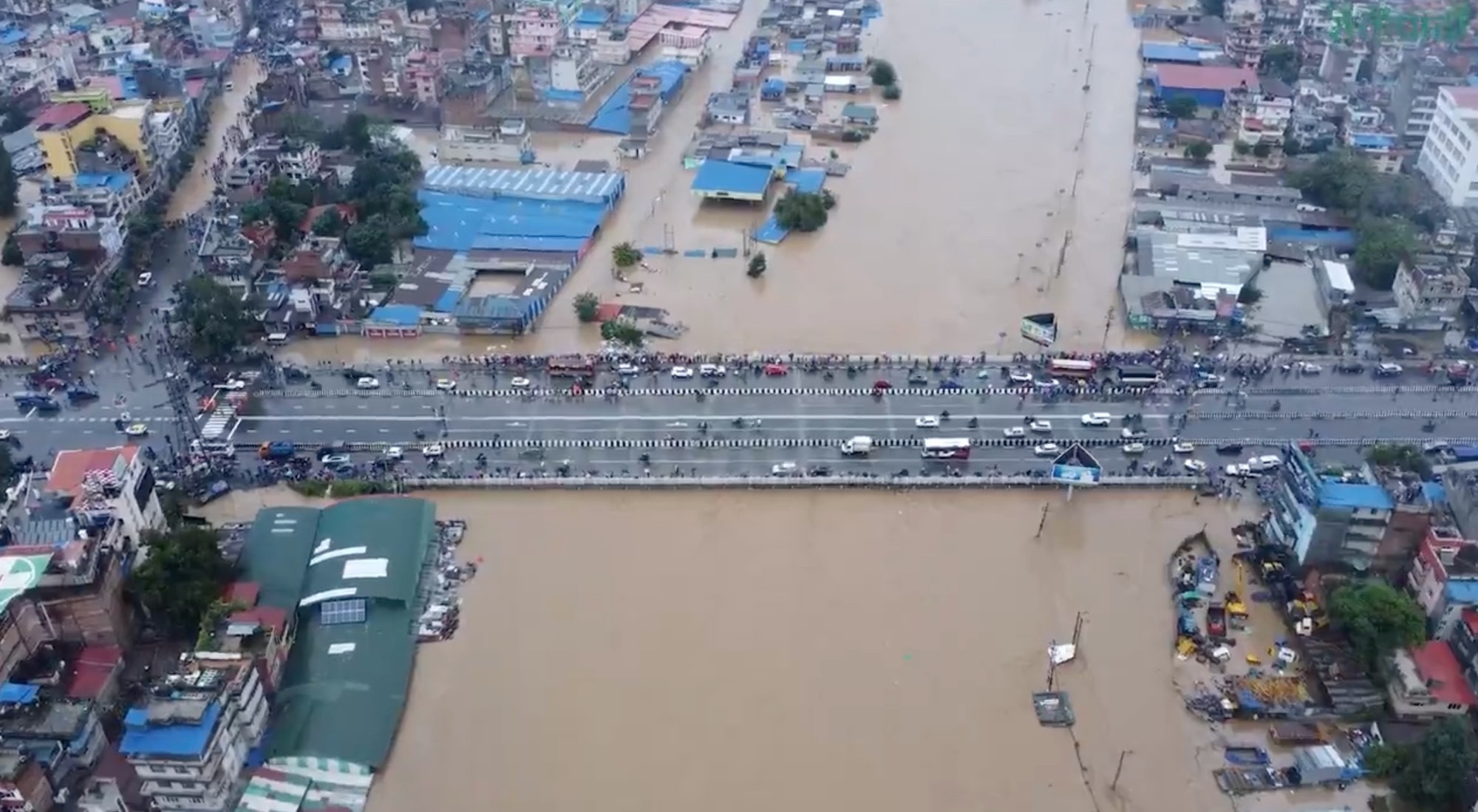Nepal is currently grappling with an unprecedented climate crisis as it faces relentless and heavy rainfall. In the past two days alone, this extreme weather has caused rivers to burst their banks and triggered devastating landslides, claiming more than 100 lives as of now and leaving many still missing nationwide. Rainfall exceeded all previous records at 25 stations across the country. The scenes of destruction are heartbreaking: major highways are blocked, and there is widespread damage to property and critical infrastructure such as schools, hospital and hydropower across the country. This catastrophe is a stark reminder of the pressing need to urgently address the climate crisis.
The recent weather patterns are not mere coincidences; they are alarming signals that we can no longer ignore. Nepal's Flood Forecasting Authority has confirmed that warning levels have been triggered at 101 hydromet stations nationwide, indicating that extreme weather events are becoming increasingly frequent and devastating. The weather forecasting agency, along with the Flood Alert Authority, has issued alerts warning residents that water levels in several rivers will continue to rise. The call for caution has never been more critical.
Kathmandu, the capital city, has been hit the hardest, with unplanned urban planning and governance challenges likely compounding the impact. In just two days, it received half of its average annual rainfall, with more than 700mm of rain falling in just the last 30 hours. This deluge has not only wreaked havoc on the city’s infrastructure but has also placed immense pressure on the already strained emergency services. It’s heartbreaking that even in the capital, lives—including those of children—were lost while waiting for rescue.
In response to this crisis, Nepal's National Disaster Risk Reduction Authority and national security forces, including Nepal's Armed Police Force, Army, and Police are mobilizing for immediate search and rescue efforts. Local governments are doing everything they can to assist, but the scale of the disaster is such, much more remains to be done. The urgency of the situation cannot be overstated; immediate action is essential to save lives and provide relief to those affected.
To effectively address this escalating crisis, nationwide preparedness and international responses must evolve. At the domestic level, political motivation is key to implementing both immediate responses and long-term recovery plans. On the international front, evolving Loss and Damage Fund, along with other financial mechanisms, must be tailored to meet the needs of nations facing such extreme weather events. The traditional approach of lengthy funding proposal processes and bureaucratic delays will not suffice in times of urgent need.
As we reflect on these events, it is imperative to recognize that this is not just a local issue but a global crisis. The recent report of the Intergovernmental Panel on Climate Change (IPCC) underscores the reality of our changing climate. It confirms that the frequency and intensity of heavy precipitation have likely increased globally, including in Asia, where countries like Nepal are experiencing the brunt of these changes. Every degree of global warming is projected to cause a 7% increase in extreme daily rainfall.
The time for action is now. We cannot wait for more lives to be lost and infrastructure destroyed. We owe the people of Nepal and future generations a commitment to prioritize urgent action and ensure resources are available for immediate relief and long-term resilience. The path forward must be built on solidarity, urgency, and a commitment to addressing the root causes of climate crises while working toward a sustainable future for all.
Photo: Setopati



